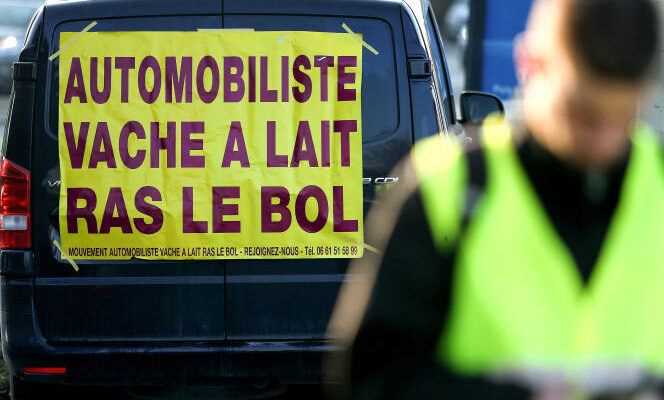The automobile tenses up as much as it fascinates. No wonder she is a sensitive subject in politics. If it is good to spare it despite its polluting nature, it leads politicians to play the balancing act, stuck between environmental imperatives and the desire not to stigmatize an object that has become, in less than a century, essential to the French.
Embodying freedom and territorial cohesion, the car combines utilitarian and symbolic dimensions. Since the post-war period, it has been a mass object inscribed with a hot iron in the mental map of the country. Its use has encouraged the proliferation of industrial and commercial zones, ring roads, car parks and roundabouts: France has been redesigned by and for the automobile.
The car also remains one of the French industrial flagships and one of the manufacturing sectors which employ the most, even if it is in decline. “This makes it a deeply political object”, underlines Chloé Morin, political scientist associated with the Jean Jaurès Foundation.
For Jérôme Fourquet, director of the opinion department of the FIFG and co-author of France before our eyes (Threshold, 496 p., 23 euros), which is interested in the evolution of lifestyles, “Today, 85% of households have at least one vehicle, and it is above all an essential good for two thirds of them, who live in particular in peri-urban and rural areas”.
The “vampirized” household budget
The automobile also weighs heavily on the French wallet. After the “red caps” revolt in 2013 around the eco-tax, the “yellow vests” crisis at the end of 2018 was triggered in particular in reaction to the rise in fuel prices.
Made compulsory in 2011 by Nicolas Sarkozy, the now famous fluorescent yellow equipment is part of a list of new obligations for motorists, which has been growing since the beginning of the millennium: increase in the cost of the gray card for vehicles with high emissions , passage from 90 km / h to 80 km / h on secondary roads, installation of the Crit’Air sticker or even tightening of technical control increase the budget of motorists. Two-wheelers are no exception, as recalled by the recent tensions caused by the switch to paid parking in Paris or even the decline of Emmanuel Macron on the mandatory technical control.
“What the ‘yellow vests’ recalled is that without a car, they can do nothing, but that its cost is devastating the household budget”, adds Jérôme Fourquet. An argument supported by Yoann Demoli, sociologist and co-author of a manual of Automotive sociology (The Discovery, 2019): “Car use is stratified geographically and socially. The most dependent are not only those who are far from metropolitan areas, but also the least well paid. “ Facing them, “The wealthier classes stand out from the car”, extends the latter.
You have 67.86% of this article left to read. The rest is for subscribers only.
